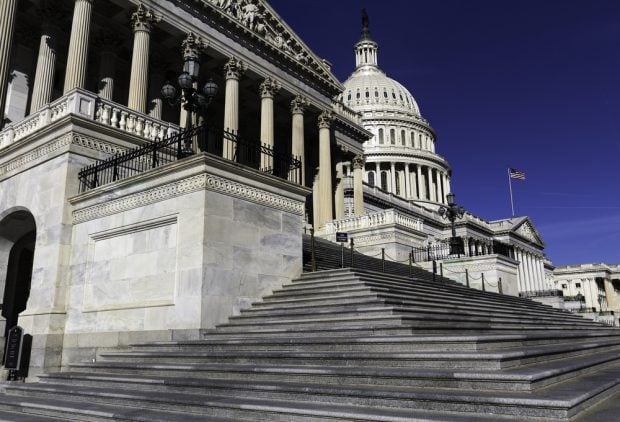 “My friends, I want to talk for afew minutes with the people of the United States about banking.”With those words, President Franklin Delano Roosevelt's voiceentered America's living rooms for the first of his famous firesidechats.
“My friends, I want to talk for afew minutes with the people of the United States about banking.”With those words, President Franklin Delano Roosevelt's voiceentered America's living rooms for the first of his famous firesidechats.
He described the causes of the “bad banking situation” thatAmerica faced, and set in motion a series of initiatives to renewand revitalize America's financial institutions. One of thoselegislative initiatives was the Federal Credit Union Act, whichbecame law 80 years ago this week.
|The law paved the way for creating the NCUA as an independentregulatory body, and laid the groundwork for the credit unionsystem that today serves more than 97 million members and managesmore than $1.1 trillion in assets.
|As I look out at a credit union system that is operating in anincreasingly complex marketplace, I believe the best way to honorthe FCUA is to ensure that credit unions survive and thrive wellinto the future.
|Even though the credit union system has weathered 13 recessionsin the past 80 years, it is not immune to a crisis.
|When I became NCUA chairman in 2009, President Roosevelt's wordson the radio could have just as easily come from the White HouseYouTube channel. We had a “bad banking situation” for our nationand a precarious situation for credit unions.
|My role as a financial regulator more closely resembled that ofa field surgeon: triage and tough questions. How many credit unionswere in imminent danger of failing? Which could be saved? And whatwas required for that to occur?
|When the dust settled, 102 credit unions had failed, costing thesystem three-quarters of a billion dollars—a tough blow to a systemthat is capitalized solely by credit unions and not taxpayerdollars.
|A significant part of credit unions' losses were caused by WallStreet securities firms that sold faulty mortgage-backedsecurities. Shortly after the financial crisis, NCUA became thefirst financial institutions regulator to sue these firms forselling securities that were largely rated AAA despite numerousmisrepresentations about the quality of mortgage loans theycontained. So far we've recovered $1.75 billion, and we have 15lawsuits pending to hold all responsible parties accountable.
|Today, with stronger regulations and a recovering economy, thecredit union system has bounced back. Credit unions have made moreloans, increased capital, earned a higher return on assets, andimproved other key metrics. But protecting the system is even morechallenging today than when Congress created the NCUSIF, because asmaller number of credit unions now manage a greater portion of allinsured deposits.
|That is one reason why NCUA has proposed modernizing itsrisk-based capital rule: to ensure that a small group of creditunions taking excessively high risks cannot threaten the entiresystem.
|Had such a rule been in place before the financial crisis, wewould have seen many fewer failures and far fewer losses. Afterall, many of the credit unions that failed during the financialcrisis appeared to have sufficient capital – until theycollapsed.
|Risk-based capital is intended to ensure that complex creditunions hold enough capital to compensate for the risk in theirportfolio. This is among the most critical steps NCUA is taking tohelp the credit union system complete its recovery, thrive wellinto the future, and honor the intent of the original FCUA.
|As a native New Yorker, one of my favorite childhood memories islooking out from the observation deck of the Empire State Building.Today, that building reminds me that even historic icons need to beupdated.
|Shortly before legislators finalized the FCUA in 1934, workerscompleted the Empire State Building. And on its 80th birthday, anew generation of workers began renovations to modernize itswindows, elevators and climate control systems.
|Today, the Empire State Building is every bit the icon that itwas 80 years ago, but it is a far more modern, efficient, resilient– and therefore valuable – building.
|By honoring the FCUA, and updating the regulations thatimplement the Act, I believe we will be able to use those samewords – modern, efficient, resilient, and valuable – to describeour nation's credit union system.
|Debbie Matz is chairman of the NCUA. She can be reachedat 703-518-6301 or [email protected].
Complete your profile to continue reading and get FREE access to CUTimes.com, part of your ALM digital membership.
Your access to unlimited CUTimes.com content isn’t changing.
Once you are an ALM digital member, you’ll receive:
- Critical CUTimes.com information including comprehensive product and service provider listings via the Marketplace Directory, CU Careers, resources from industry leaders, webcasts, and breaking news, analysis and more with our informative Newsletters.
- Exclusive discounts on ALM and CU Times events.
- Access to other award-winning ALM websites including Law.com and GlobeSt.com.
Already have an account? Sign In
© 2024 ALM Global, LLC, All Rights Reserved. Request academic re-use from www.copyright.com. All other uses, submit a request to [email protected]. For more information visit Asset & Logo Licensing.









